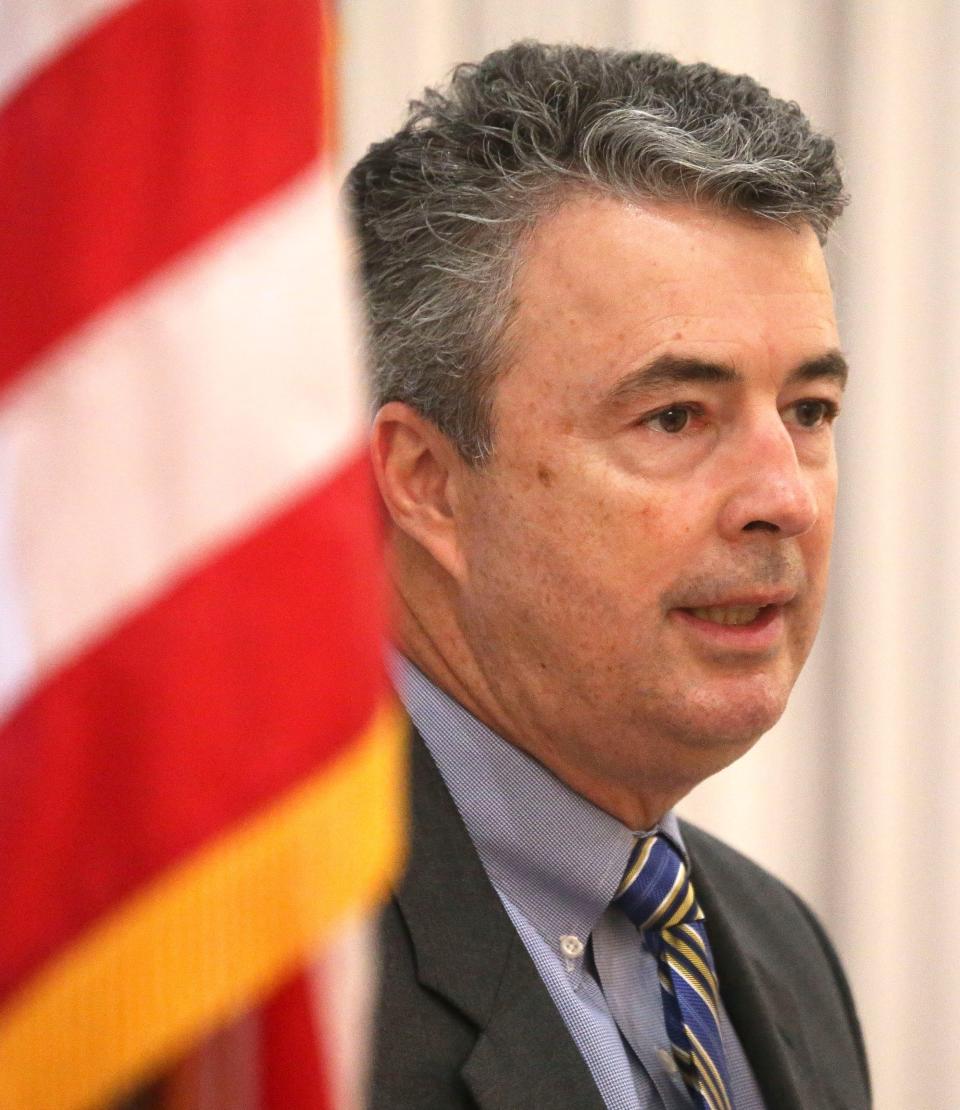Greenetrack ordered to repay $76 million in back taxes

More than a decade of litigation over back taxes owed by a Greene County bingo business appears to be resolved.
On Thursday, the Alabama Supreme Court overturned a prior judgment in favor of Greenetrack and ordered the parlor to repay $76 million in unpaid taxes.
“Every day, all across our great state, the people of Alabama get up, work hard to make an honorable living, obey the law, and pay their taxes,” said Attorney General Steve Marshall in a news release announcing the court’s decision. “And then there are the likes of Greenetrack, which scheme to make a dishonorable profit, break the law, and evade their taxes. Such a sordid state of affairs is more than merely unjust – it is hateful to the rule of law. And, under my watch, it will not be tolerated.”

The state’s high court ruled in favor of the Alabama attorney general’s office and concluded that Greenetrack’s operation “did not immunize it from taxes” and “did not comply with (Alabama law),” according the court’s opinion.
REVOKED: Tuscaloosa motel loses business license over crime, public health concerns
Its decision rendering a judgment for the state of Alabama now allows the state to collect more than $76 million in unpaid taxes and interest.
While a representative for Greenetrack did not return a message seeking comment, the company has argued since it was first sued in 2011 that state law doesn't allow sales taxes to be collected on gross receipts from electronic bingo machines.
They also have argued that the track is not liable because charitable organizations had the licenses to operate the machines and paid Greenetrack for its property, use of the machines and staff.
While the 2003 law that established bingo in Greene County describes activity that bears little resemblance to Greenetrack's business, Greenetrack President and CEO Luther W. “Nat” Winn has repeatedly said that Greenetrack operates via contracts with nonprofit and charity groups, which he described as the operators of the bingo games while Greenetrack serves only as the host site.
The Alabama Department of Revenue took issue with that explanation and filed suit, arguing that Greenetrack owed taxes on money made from its a casino-style enterprise.
From 2004 to 2008, the state claimed, Greenetrack reaped profits from what the state described as an illegal gambling enterprise that employed a revolving slate of nonprofit organizations in an effort to evade Alabama’s laws and taxes.
Greenetrack entered into agreements with nonprofit organizations to allow them, on paper, to “lease” and “operate” Greenetrack’s enterprise. In return for serving as a shield from paying taxes, the nonprofits received a tiny fraction of Greenetrack’s illegal gambling proceeds as a kickback and Greenetrack kept the rest, tax free, the state said.
As an example, the Alabama attorney general said that, in 2007, nonprofit organizations received 2.5% of the nearly $69 million that Greenetrack netted from its operations that year.
Greenetrack, however, has said it gives back regularly to the organizations it supports – at one point, Winn said bingo at Greenetrack provided an average of $4,850 per day to be shared among the nonprofits – and has made large contributions to the government and agencies that operate in Greene County.
In 2007, the same year that the state said Greenetrack was shorting its charities, Greenetrack gave the Greene County Commission $100,000 as a “goodwill gesture."
It has purchased laptop computers for Greene County students in the past and, in 2021, announced the Greenetrack Scholarship, established within the Alabama A&M University Foundation with an initial contribution of $10,000 for college students from Greene, Sumter, Hale, Perry, Bibb, Pickens, Choctaw, Marengo, Dallas and Wilcox counties “so that they can return and help improve the quality of life in the region.”
Winn and other Greenetrack officials have labeled the legal actions, which have included the state’s seizure of its bingo machines in years past, as “political blackmail.”
“Today marks yet another sad chapter in a long history of partisan harassment of our operations,” Winn said following then-Attorney General Luther Strange’s seizure of bingo machines from Greenetrack and three other Greene County bingo operations in 2014. “Such targeting by the attorney general is clearly a blatant political maneuver meant to undermine and damage our efforts to expand our operations into other states.
“While an inconvenience and an injustice, we are confident that fair minded people will see this transparently unethical action exactly for what it is … political blackmail. Using police powers to pursue a partisan political agenda is an abuse of power. After years of persecution and discrimination this has become an emotional issue for our supporters in Alabama.”
Reach Jason Morton at jason.morton@tuscaloosanews.com.
This article originally appeared on The Tuscaloosa News: Greenetrack ordered to repay $76 million in back taxes

